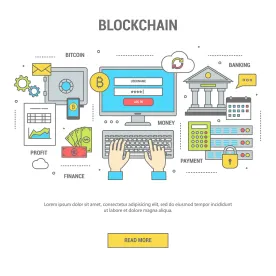There is a lot of buzz around blockchain technology and its potential to revolutionize a wide range of industries from finance and health care to real estate and supply chain management. Many institutions and companies are forming partnerships to explore how blockchain ledgers and smart contracts can be deployed to manage and share data, create transactional efficiencies, and reduce costs.
While virtual currencies and blockchain technology in the financial services industry have been the subject of significant debate and discussion, blockchain applications that could transform the energy industry have received comparatively less attention.
KEPCO Announces Exploration of Blockchain-Based Solar Trading Platform.
-
Kansai Electric Power Co. (“KEPCO”), the second largest utility in Japan, will study the “price of surplus electricity generated by photovoltaic power” and explore developing a trading platform for such excess electricity. KEPCO will use blockchain to record the pricing data and as the underlying technology for the trading platform. Over the next few months, the company will develop and use the platform to simulate sales.
-
These ventures are not KEPCO’s first foray into blockchain. Earlier this year, the utility announced a project with Power Ledger, an Australian-based blockchain developer, to establish a separate blockchain-based electricity trading platform. Through the platform, nearly two dozen households will experiment with direct energy trading. KEPCO and Power Ledger’s ultimate goal is to create virtual power plants powered by blockchain. Additionally, KEPCO has already used blockchain to simulate energy transactions.
-
KEPCO is not the only utility to begin researching blockchain use cases. In Japan alone, TEPCO and Chubu Electric Power Co. have been working with blockchain platforms for various uses. In the United States, PG&E, among others, have also been testing the technology. Utilities’ growing exploration of the technology signals that they are recognizing the potential for efficiency gains, and the necessity to innovate as distributed energy resources continue to become more significant.
SP Group Using Blockchain to Power REC Trading Platform in Singapore.
-
SP Group, a Singapore-based electricity and natural gas transmission and distribution company, now enables companies to purchase renewable energy credits (“RECs”) via a blockchain-based trading platform. SP Group believes its platform will make the REC market in Singapore more transparent and secure, and will reduce transaction costs by supplanting a centralized verification entity. Moreover, SP Group hopes its platform will create a larger market for REC trading, encouraging large and small entities to participate.
-
As we have previously discussed, REC trading is an important blockchain use case that is gaining traction around the world. In the United States, the Energy Web Foundation (“EWF”) has partnered with PJM Environmental Information Services (“PJM-EIS”) to operate a pilot program to apply EWF’s EW Origin toolkit to administer part of PJM-EIS’s Generation Attribute Tracking System (“GATS”). Currently, GATS tracks electricity production by generating an electronic certificate for each megawatt-hour produced by a generator. As blockchain matures, it may play a significant role in promoting more efficient, larger, and more transparent REC markets. The ability to scale the technology to handle significant trading volumes quickly and cheaply will be a key consideration.
Energy Web Foundation Unveils an Electric Vehicle Charging Toolkit for EW Origin.
-
The EWF has added a software tool kit for charging electric vehicles to EW Origin. The toolkit will focus on “automatically charging electric vehicles, e-bikes, and other electric mobility solutions with clean energy.” The toolkit will enable consumers to understand their carbon emissions reductions by charging their cars with clean energy sources. To do this, the toolkit will record the kilowatt hours (“kWh”) of electricity used to charge the car. Then, it will pair the kWh with renewable energy certificates recorded through EW Origin.
-
EWF plans to demonstrate the new toolkit with its affiliate, Wirelane, during European Utility Week. Wirelane will provide the electric vehicle charging equipment that will operate the new toolkit. The new toolkit appears to add functionality to EWF’s blockchain-based REC infrastructure, expanding it into the sprawling electric vehicle charging market. EWF hopes that the new toolkit will expand the use of renewable energy for electric vehicle charging and help integrate charging network operators.



 />i
/>i

